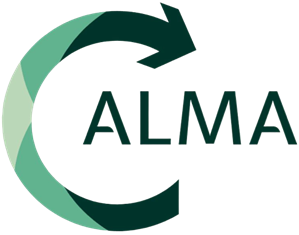
Over the next three years, and based on our expertise in plastics, we will develop structural parts using SMC composites, taking into account eco-design, LCA (Life Cycle Assessment) and LCC (Life Cycle Cost) criteria.
- BATZ is one of nine European organisations participating in the ALMA project (Advanced Light Materials and Processes for the Eco-Design of Electric Vehicles), which aims to improve the efficiency and range of electric vehicles by reducing their overall weight, according to the European strategy for low-emission mobility.
- In order to improve the efficiency and driving range of electric vehicles (EVs), the weight of theglobal vehicle must be reduced. Furthermore, increasing environmental awareness and forthcoming stricter regulations demands the adoption of circular economy principles across the entire vehicle life cycle.
This is a three-year project which aims to achieve innovation and sustainability. To respond to this challenge, ALMA will develop a novel battery electric vehicle (BEV) structure for a passenger car with 45% weight reduction potential compared to current baseline at affordable costs. For this purpose, ALMA will develop a Multimaterial modular platform made of a combination of Advanced High Strength Steels (AHHS), Advanced-SMC and steel-hybrid materials, characterized with multiscale modelbased tools.
The Circular Economy is at its core. ALMA will adopt circular economy principles from early stages through the application of eco-design strategies to create a novel BEV platform “made to be recycled”. For this purpose, it will use a structural reversible bonding technology to enable the separation of components at the endof-life (EoL) for repair and reuse. A groundbreaking health monitoring system based on acoustic emissions will be integrated in the structure to detect and locate damage while inservice. Finally, efficient recycling and material recovery options will be analyzed to complete the circular loop.
This consortium for a European Commission Horizon 2020 project seeks to harness the collective strengths to collaborate across disciplines. The group involves five market-orientated companies, three RTOs and one International association; the members of the consortium, led by CTAG – Automotive Technology Centre of Galicia (Spain), include: Arcelormittal Maizieres Research (France), Ford-Werke (Germany), Innerspec Technologies Europe (Spain), BATZ (Spain), RESCOLL (France), Fraunhofer Gesellschaft zur Foerderung der Angewandten Forschung E.V. (Germany), Nederlandse Organisatie voor Toegepast Natuurwetenschappelijk Onderzoek TNO (Netherlands) and ISWA – International Solid Waste Association (Netherlands).




